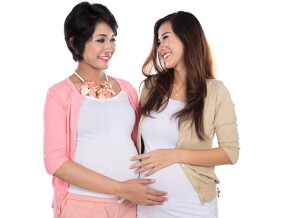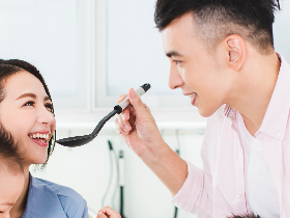
Vital Functions
At childbirth you will have plenty of extra blood to make up for what you lose during delivery.
Your blood, heart, lungs, urinary system, and even your joints change in response to the hormones of pregnancy.
Blood
By the end of your pregnancy, the amount of blood in your body gradually increases by up to 45%*. Your uterus needs some of the extra blood, but so do all the other organs in your body. Your breasts, and even your gums, receive their share of the blood. Your bone marrow becomes more active and produces more red blood cells. At childbirth you will have plenty of extra blood to make up for what you lose during delivery.
Heart
Your heart will have to work harder to push the extra fluid around your body. To do the extra work, the heart gets larger and beats an extra 10 to 15 times per minute.
Lungs
Your lungs will have to work harder than usual to make sure that your extra blood gets enough oxygen. To improve the functioning of your lungs, get plenty of fresh air and exercise.
Kidneys
Your kidneys work to filter your blood and cleanse it of waste products. During pregnancy, they work harder—and better—to clean the increased amount of blood in your body.
Bladder
Your bladder may become irritated by the contractions of your uterus, which is next to it. You will find that you need to urinate more often than usual. The extra urination may be annoying, but don't cut back on fluids to control it. You need that fluid.
Joints
The bones in your body are connected, supported, and strengthened at the joints by tough tissues called ligaments. The hormones of pregnancy soften these ligaments—especially the ones in your pelvis—and help them become more flexible. Then, during delivery, the joints in the pelvis "give" more easily to allow a smoother, easier birth.
The increased flexibility and softening of the ligaments around the pelvis can contribute to backaches during the last part of your pregnancy. Ask your health care professional about pelvic tilt exercises to help avoid the backaches. (See Exercise on this site for an example.)
Other ligaments may stretch during pregnancy, causing aches in your lower back, legs, and feet. Exercise, shoes with proper support, and massage can be helpful. Good posture is important, too.
Disclaimer: This content is shared for informational purposes only and not intended to be a substitute for professional/medical advice, diagnosis, or treatment. We recommended that you always seek the advice of your healthcare professional for any questions you may have regarding a medical condition/specific situation.






